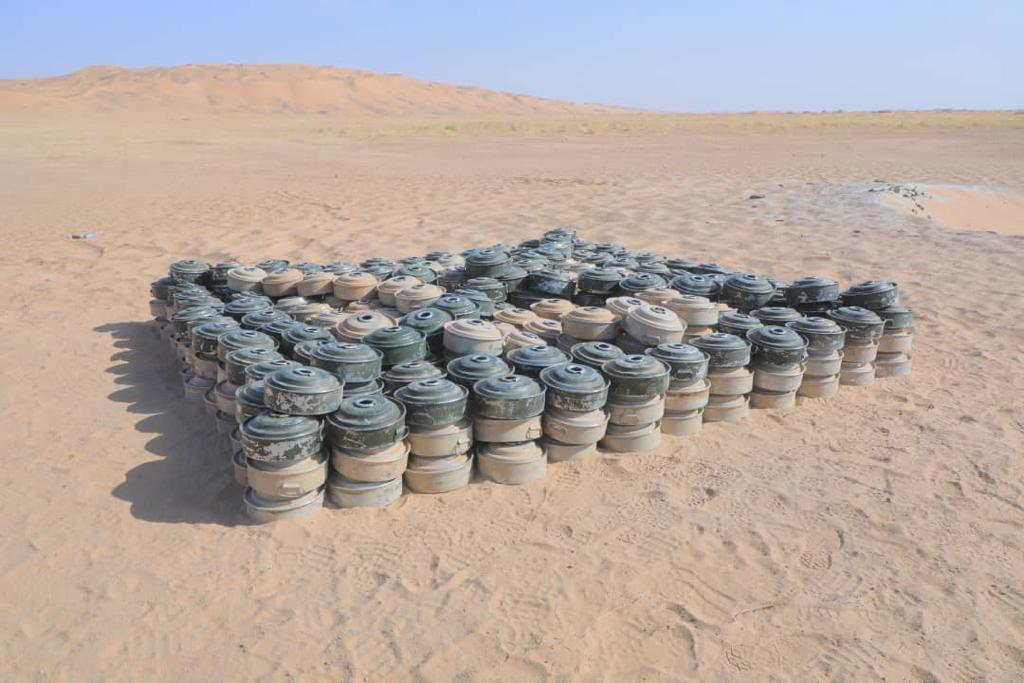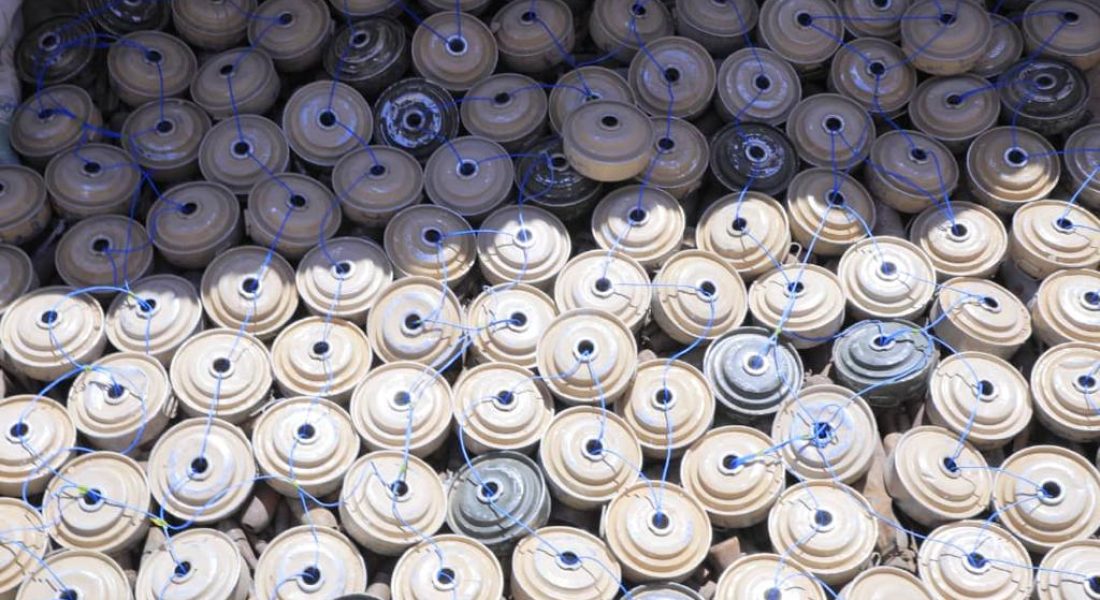Project Masam has cleared 5,110 landmines, unexploded ordnance (UXO) and improvised explosive devices (IEDs) in August as it continues its mission to rid Yemen of deadly explosive threats.
During August 2023, the demining project removed 4,594 UXO and 456 anti-tank mines, effectively clearing 1,082,888 square metres.
Since Project Masam launched at the end of June 2018, demining teams have cleared 414.526 landmines and IEDs planted indiscriminately by the Houthi militia in several Yemeni governorates, as well as UXO, over a surface of 49,567,919 square metres.
Recent awards
On the occasion of World Humanitarian Day (19 August), the Aden-based TENs initiative, a youth non-governmental organisation, awarded Project Masam’s Managing Director Ousama Algosaibi with the Humanitarian Work Medal in recognition of the efforts he has made in Yemen since 2018, through his successful leadership of Project Masam.
During the ceremony, Ammatu Al-Rahman Al-Afouri, the local representative of the TENs initiative in Yemen, praised the efforts made by Project Masam over a period of five and a half years, to save civilian lives from the danger of landmines, IEDs and other remnants of war.
The assistant managing director of Project Masam, Qassim Al-Dosari, expressed his appreciation to the youth group for their interest, which he said reflects their maturity, awareness, and positive role in supporting humanitarian landmine clearance work.
The students of the Faculty of Sharia and Law at the University of Saba Region in Marib, meanwhile, honoured Project Masam by granting it the Shield of Loyalty, in recognition of its mine clearance work in the region.
During the ceremony, lawyer Essam Khamis and members of the Preparatory Committee of the Law Ambassadors highlighted the efforts made by the project’s demining teams over the last five and a half years in Yemen and the support given by Saudi Arabia.
Following the event, the assistant managing director of Project Masam, Khalid Al-Otaibi, expressed his thanks to the students of the Faculty of Sharia and Law, stressing that the Kingdom of Saudi Arabia continues to support Yemen to achieve safety and stability.
Al-Otaibi said that Project Masam managed to overcome lingering obstacles such as violence and terrain. Despite the sacrifices made by Project Masam which has lost 33 highly trained and valued experts and deminers in addition to another 40 wounded, the majority of whom suffer from permanent disabilities as a result of their injuries, Project Masam continues to perform its humanitarian landmine clearance work with determination.

Regional diplomacy
A delegation from the Saudi Development and Reconstruction Program for Yemen (SDRPY) visited Project Masam’s headquarters in the de facto capital Aden. During the visit, the delegation met with a number of the project officials and was briefed on the achievements made by the demining project.
Headed by Hassan Al-Attas, SDRPY assistant general supervisor, the delegation received a detailed presentation of technical aspects related to Project Masam clearance operations from Vince Farrell, the project’s Senior Technical Advisor, and Fayez Al-Harbi, a demining expert.
During the visit, the delegation members expressed their appreciation for the project’s successes in clearing liberated lands in Yemen, and voiced their thanks to Project Masam staff for their hospitality and welcome.
UN delegation visit
The UN team was represented during the visit by expert Leon Visagi Lou, assistant Iveta Havaikova, and political affairs coordinator Muhammad Ismail Khan.
The delegation visited teams 25 and 27 in the field.
Elsewhere, Team 4 began the process of opening and securing the Aqaba Maqaba Road, which connects the centre of the Bayhan district and the Wadi al-Khair area.The team leader added that reopening the road after securing it will contribute to alleviating the suffering of the local residents of Wadi Al-Khair and its neighbouring villages, as it will reduce the distance they need to reach the centre of the district.

